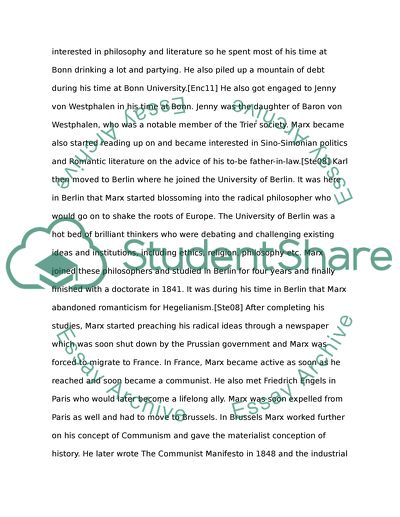Cite this document
(“Karl Marx Essay Example | Topics and Well Written Essays - 1250 words - 1”, n.d.)
Karl Marx Essay Example | Topics and Well Written Essays - 1250 words - 1. Retrieved from https://studentshare.org/philosophy/1434155-this-is-a-biography-on-a-philosopher-of-choice
Karl Marx Essay Example | Topics and Well Written Essays - 1250 words - 1. Retrieved from https://studentshare.org/philosophy/1434155-this-is-a-biography-on-a-philosopher-of-choice
(Karl Marx Essay Example | Topics and Well Written Essays - 1250 Words - 1)
Karl Marx Essay Example | Topics and Well Written Essays - 1250 Words - 1. https://studentshare.org/philosophy/1434155-this-is-a-biography-on-a-philosopher-of-choice.
Karl Marx Essay Example | Topics and Well Written Essays - 1250 Words - 1. https://studentshare.org/philosophy/1434155-this-is-a-biography-on-a-philosopher-of-choice.
“Karl Marx Essay Example | Topics and Well Written Essays - 1250 Words - 1”, n.d. https://studentshare.org/philosophy/1434155-this-is-a-biography-on-a-philosopher-of-choice.


